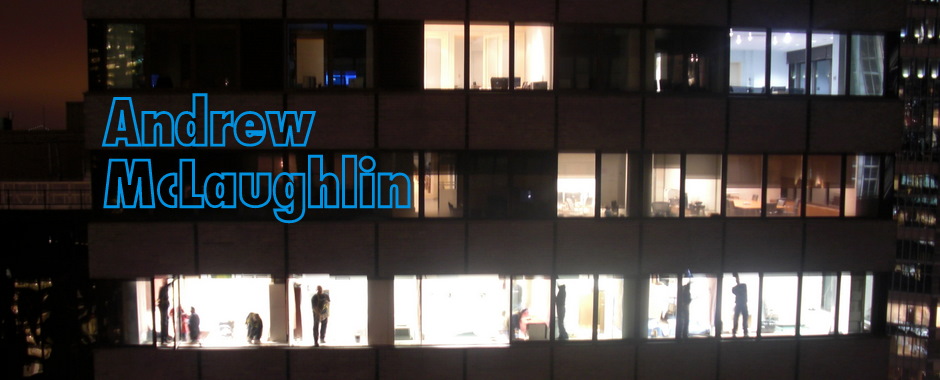Librarians + technology = a personal nirvana. There is no more awesome set of people doing more important work than the librarians and their nerd allies at the bleeding edge of library tech -- they are engaged in an underappreciated struggle to work out how mankind is going to preserve, extend, share, and democratize the sum of human knowledge in our increasingly digital age. So I was really psyched to go a do a talk at the 2012 Library Technology Conference about the technological forces driving the great policy issues of our age, along with an argument about why and where the library community should be engaged. Bonus for me: The event was at Macalester College, where I spent my high school summers taking Russian while trying to look like something other than the huge dork I was.
Here's my keynote, "Fight for the Future: Libraries, Tech Policy, and the Fate of Human Knowledge."
Andrew McLaughlin @ Library Technology Conference 2012 from Library Technology Conference on Vimeo.
The Prezi is here.
